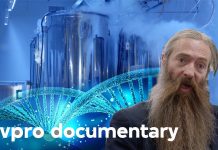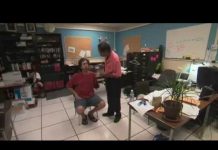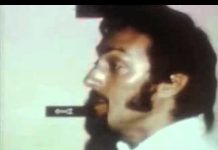In a world where modern medicine and conventional treatments dominate the healthcare landscape, alternative therapies have emerged as intriguing and controversial alternatives. Among these practices, hypnotherapy, with its potential to address a wide range of issues, has captured the curiosity of many. In a captivating documentary, Professor Kathy Sykes delves into the realm of alternative medicine, shedding light on the enigmatic world of hypnotherapy and its growing popularity in Europe and the US.
“Alternative Medicine: Hypnotherapy” takes viewers on an eye-opening journey as Kathy Sykes, a distinguished professor of Science and Society at Bristol, delves into the fascinating realm of alternative healing. With half a million people in England alone turning to hypnotherapy annually, the documentary seeks to uncover the various claims and promises associated with this age-old practice.
At the heart of the film are the personal stories of individuals seeking solace and solutions through hypnosis. Richard, a determined individual yearning to quit smoking; Nicola, on a quest to regain control over her eating habits; and Mandy, bravely desiring teeth implants without anesthesia, all stand as testaments to the diverse applications of hypnotherapy. Their experiences provide a window into the multifaceted potential of this alternative healing method.
Throughout the documentary, Kathy Sykes takes a hands-on approach by trying hypnosis herself. Through her firsthand encounter with this mysterious practice, she aims to demystify the hypnotic trance and explore the scientific basis that underpins the efficacy of hypnotherapy.
One of the most compelling aspects of the film is its exploration of the claims surrounding hypnotherapy. From addiction and phobias to allergies and even breast enlargement, practitioners and proponents assert that hypnosis can address a myriad of conditions. Kathy delves into the scientific explanations and research behind these claims, seeking to separate myth from reality.
By delving into the therapeutic potential of hypnotherapy, the documentary sparks a broader discussion about the role of alternative therapies in modern healthcare. It confronts the age-old dichotomy between traditional medicine and alternative healing methods, encouraging viewers to question established norms and consider alternative paths to well-being.
As the film unfolds, it becomes evident that hypnotherapy is not merely about inducing a trance-like state; it is a journey of self-discovery and empowerment for those seeking change. By tapping into the subconscious mind, hypnotherapy provides individuals with a tool to explore and address the root causes of their challenges, fostering a sense of agency over their own well-being.
The documentary also sheds light on the scientific advancements that have deepened our understanding of the hypnotic trance. What was once shrouded in mystery is now being unraveled through neuroscientific research, offering valuable insights into the workings of the human mind during hypnosis.
While “Alternative Medicine: Hypnotherapy” offers a compelling and informative exploration of the practice, it also raises important questions about the need for further research and regulation in the realm of alternative therapies. With hypnotherapy gaining popularity and widespread use, ensuring its safe and effective application becomes paramount.
In conclusion, “Alternative Medicine: Hypnotherapy” stands as an engrossing and thought-provoking documentary that peels back the layers of the mysterious practice of hypnotherapy. Through intimate personal stories and scientific investigations, Kathy Sykes offers viewers a captivating glimpse into the realm of alternative medicine. As the boundaries between conventional and alternative therapies continue to blur, the film prompts us to reconsider our perceptions of healing and the power of the human mind in shaping our well-being.

































